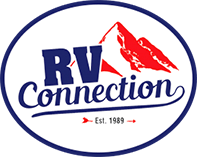RV Insurance: A Comprehensive Guide for New Buyers
Are you gearing up for the exciting journey of purchasing your first RV? Fantastic! But, before you hit the open road, there's a crucial aspect you shouldn't overlook: RV insurance. Navigating the ins and outs of recreational vehicle insurance can be overwhelming for newcomers. Fear not! In this guide, we'll break down everything new RV buyers need to know about securing the right insurance coverage for their home on wheels.
Understanding RV Insurance Basics
1. RV Insurance vs. Auto Insurance
Let's start by understanding the fundamental difference between RV insurance and regular auto insurance. While some aspects overlap, such as liability coverage, RV insurance offers specialized protection tailored to the unique needs of RV owners.
2. Types of RV Insurance
RV insurance isn't one-size-fits-all. Depending on your RV type, you might need different coverage. From Class A motorhomes to towable RVs, understanding these distinctions is crucial in selecting the most suitable policy.
Key Coverage Components
3. Comprehensive Coverage
Imagine a peaceful camping trip interrupted by a hailstorm. Comprehensive coverage ensures you're protected from non-collision incidents like natural disasters, theft, or vandalism.
4. Collision Coverage
Accidents happen, even to the most careful drivers. Collision coverage steps in to cover the cost of repairing or replacing your RV if it's damaged in a collision.
5. Liability Coverage
Whether parked at a campsite or cruising down the highway, liability coverage is your safety net. It covers injuries or property damage if you're at fault in an accident.
Factors Affecting Premiums
6. Driving Record
Your driving history plays a pivotal role in determining your RV insurance premiums. Maintaining a clean record can lead to more affordable coverage.
7. RV Type and Value
The type and value of your RV directly impact insurance costs. High-end Class A motorhomes generally require more coverage than a compact travel trailer.
8. Usage Frequency
How often do you plan to use your RV? If it's a full-time residence, you'll likely need a different policy than someone who uses their RV occasionally for vacations.
Tips for Affordable Coverage
9. Bundle Policies
Consider bundling your RV insurance with other policies, such as auto or homeowners insurance. Many insurance providers offer discounts for bundling.
10. Shop Around
Don't settle for the first insurance quote you receive. Shopping around allows you to compare rates and coverage options, ensuring you get the best value for your money.
Conclusion
Embarking on the journey of RV ownership is exhilarating, and having the right insurance is crucial. By understanding the nuances of RV insurance, you can protect your investment and travel with confidence. Assess your unique needs, explore coverage options, and seek professional advice to ensure you're getting the coverage that's right for you. Safe travels!

